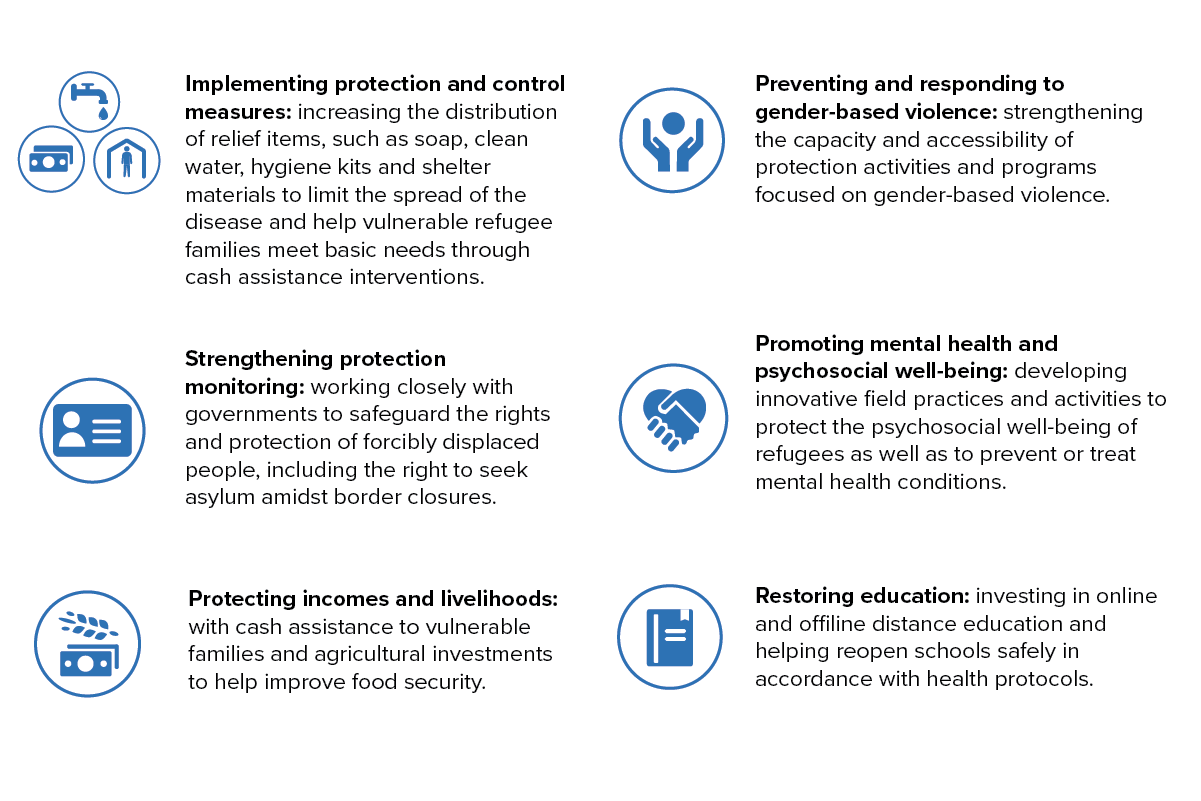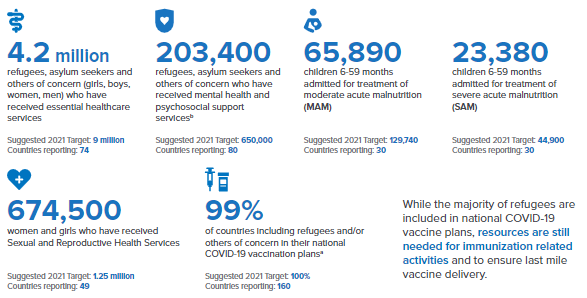VIDEO
UNHCR High Commissioner explains the effects of COVID-19 pandemic on refugees and displaced communities
A global pandemic requires a global response. With your support, we can prevent the coronavirus disease from spreading and save millions of vulnerable displaced families worldwide.
Since the beginning of the outbreak, UNHCR has been on the ground coordinating efforts to safeguard the rights and needs of forcibly displaced communities and to ensure they have access to essential services and lifesaving support, particularly in densely populated areas.
UNHCR’s coronavirus prevention and response operations are focused on the following areas:


Two refugee girls from Venezuela washing their hands at an emergency shelter in Boa Vista, Brazil.
More Facts
This is how refugees celebrate Ramadan
Despite challenging circumstances, refugees around the globe are finding ways to preserve their faith and celebrate the holy month of Ramadan.
Learn MoreGlobal Vaccine Equity: A Critical Role for the Private Sector
USA for UNHCR's Anne-Marie Grey and UPS's Laura Lane sat down with leaders in public health to discuss the role the private sector can play in global vaccine equity.
Learn MoreUSA for UNHCR board member reflects on Ramadan and helping refugees during the holy month
USA for UNHCR board member, shares how her family celebrates Ramadan, how COVID-19 has impacted their celebration and why other Muslim-Americans should donate their Zakat to support refugees.
Learn MoreOpinion: 3 ways to ensure refugees get the COVID-19 vaccine
USA for UNHCR Executive Director and CEO Anne-Marie Grey and South Sudanese refugee Mary Maker reflect on three imperatives to ensure equitable COVID-19 vaccine access for refugees.
Learn More


